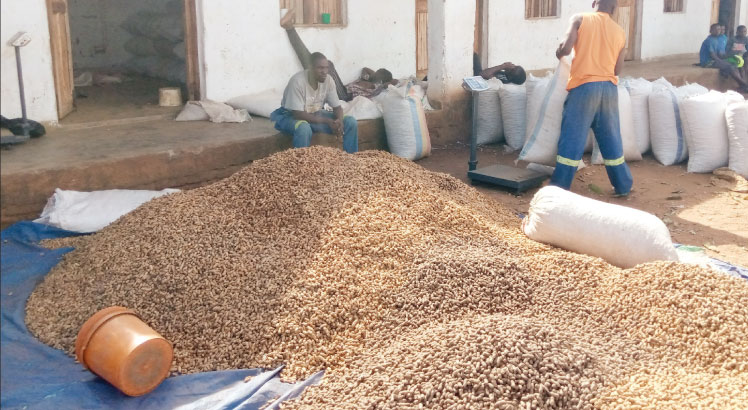RBM managing floated kwacha
 When the Reserve Bank of Malawi (RBM) devalued the kwacha by 49 percent and subsequently floated it to be market determined in May 2012, many thought the local unit will be left completely free.
When the Reserve Bank of Malawi (RBM) devalued the kwacha by 49 percent and subsequently floated it to be market determined in May 2012, many thought the local unit will be left completely free.
The understanding was that the local unit will be moving based on the demand and supply of the foreign exchange on the market.
But RBM spokesperson Ralph Tseka has said much as it is a floating exchange rate regime determined by the market forces, the central bank is managing the currency by intervening at times.
“It is a managed float because we manage it by tight monetary policy. That is to say, how we control money supply in the system. Another example is when we took away fertiliser and fuel procurement from the market,” he explained in an e-mailed reply to questions.
Tseka said such withdrawals to buy fertiliser and fuel were huge specifically done to manage the exchange rate.
“If procurement of fertiliser and fuel had not been taken from the market, where would the exchange rate be at this time if it was a free float?,” queried the RBM official, dispelling fears that RBM adopted a free-floating exchange rate regime.
Last week, the kwacha moved beyond the K400 mark, with the unit trading at K405 and K407 to a dollar at Indebank and National Bank of Malawi respectively as of Sunday an indication that the market is deficient of hard cash to support the currency even when tobacco dollars are trickling in.
Managed float is variation on the free float mechanism. Many countries use the float system to determine the rates of exchange. Under this regime, central banks intervene and help to set the exchange rates by trying to smooth out the fluctuations and volatility of the currencies.
But a Blantyre-based market analyst on Friday questioned the rationale of RBM managing the kwacha when at the same it is also determined by market forces.
“If the RBM is managing the kwacha, why is it that the currency drastically falling? Has the RBM monetary policy failed?” queried the analyst who preferred not to be named.
Figures indicate that foreign currency reserves have fallen to 0.92 months of import cover as at March 15 2013, which is below $188.1 million [one month’s reserves] against the internationally recommended three months worth of import cover [$564m].
RBM Governor Charles Chuka a fortnight ago could not say with certainty when the kwacha will stabilise and begin to appreciate against major trading currencies, but pinned hopes on tobacco sales proceeds which account for a large chunk of Malawi’s foreign exchange.
He said real solution to kwacha depreciation is forex availability, arguing that one cannot stop the unit’s depreciation by word, urging people not to panic.
In September last year, during his interaction with business journalists in Blantyre, the governor doubted the kwacha would depreciate beyond K400, arguing that nobody even companies can afford the currency at that rate. But that has happened.
But Tseka reiterated that “one cannot predict the dictates of the market with precision”, stressing that developments on the [foreign exchange] market must have pushed the rate up.





